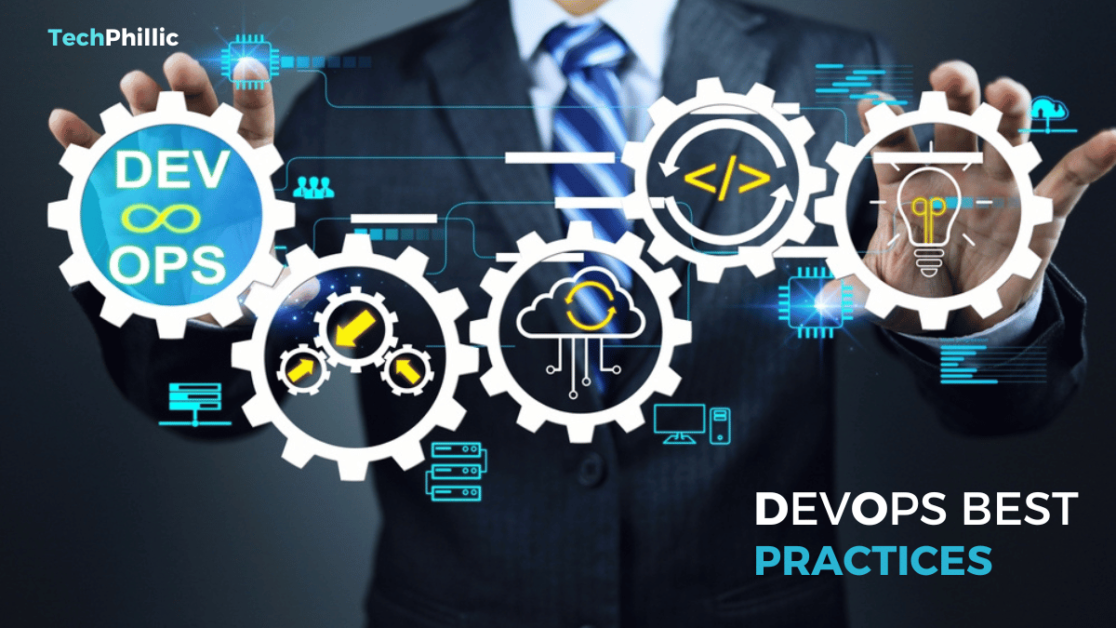In today’s fast-paced era of digital transformation, businesses face the dual challenge of delivering high-quality software rapidly while adapting to ever-evolving customer needs. Enter DevOps, a revolutionary approach that bridges the gap between development and operations, ushering in a new era of efficiency, collaboration, and continuous improvement.
In this comprehensive exploration, we unveil the profound impact of DevOp’s best practices, dissecting their core principles, enumerating their benefits, addressing potential challenges, and charting the future trajectory of this transformative movement.
The Essence of DevOps Best Practices
At the heart of DevOps lies a collection of principles that synergistically revolutionize software development and delivery. Key DevOps best practices include:
1. Continuous Integration and Delivery (CI/CD)
CI/CD represents the engine that propels DevOps. This practice involves the automatic integration of code changes into a shared repository, followed by rigorous automated testing and seamless deployment. The result? Accelerated development cycles, minimized risks, and consistently superior software quality.
2. Automated Testing
The reliance on automated testing ensures that software is subjected to a battery of tests, leaving no room for errors or oversights. This rigorous testing culture guarantees that code changes are thoroughly evaluated before they move forward in the development pipeline.
3. Infrastructure as Code (IaC)
IaC introduces the concept of treating infrastructure provisioning as code. This paradigm shift allows teams to define and deploy infrastructure through code, fostering consistency, traceability, and rapid scalability.
4. Infrastructure Automation
Automation extends beyond code to encompass infrastructure management. DevOps practices automate provisioning, configuration, and scaling, streamlining processes, and mitigating the risks associated with manual interventions.
5. Security Automation
Security becomes an integral part of every stage of development with security automation. Through automated security testing and deployment scans, vulnerabilities are detected and resolved early in the development lifecycle.
6. Monitoring and Observability
DevOps emphasizes the importance of real-time monitoring and observability. Continuous monitoring provides actionable insights into application performance, user behavior, and system health, enabling proactive issue resolution.
The Far-Reaching Benefits of DevOps Best Practices
Following DevOps best practices yield transformative outcomes across various dimensions:
1. Amplified Speed and Agility in Software Delivery
DevOps breaks down silos and instills a collaborative ethos. This cultural shift expedites software delivery cycles, enabling organizations to respond promptly to market demands and user preferences.
2. Enhanced Quality and Security of Software
Automated testing ensures that software undergoes rigorous examination, eliminating the chances of defects entering production. Additionally, security automation fortifies software against vulnerabilities and threats, bolstering overall quality.
3. Streamlined Costs and Optimal Resource Utilization
Automation minimizes manual interventions, liberating resources for strategic initiatives. This leads to cost savings and the efficient allocation of human capital, thus enhancing productivity.
4. Elevated Customer Satisfaction
The rapid and consistent delivery of software updates and features fosters heightened user satisfaction. DevOps-driven responsiveness to user needs cultivates loyalty and advocacy.
The Trials and Triumphs of Implementing DevOps Best Practices
While the rewards of DevOps are substantial, they are accompanied by a unique set of challenges:
1. Navigating Cultural Transformation
Shifting organizational culture from traditional methodologies to DevOps requires time, patience, and strong leadership. Overcoming resistance to change and fostering cross-functional collaboration are essential components of this transformation.
2. Skill Set Evolution
DevOps demands a diverse skill set. Investing in upskilling and cross-training empowers team members to excel in their roles, facilitating the seamless adoption of DevOps practices.
3. Confronting Technical Complexities
Implementing DevOps practices involves orchestrating intricate technical processes and integrating various tools. This challenge is surmountable through meticulous planning, training, and leveraging expert guidance.

ALSO READ: Unveiling Seamless Connectivity: Your Ultimate Guide to TFW Network on iPhone
Strategies for Overcoming DevOps Challenges
To navigate these challenges successfully, organizations can consider the following strategies:
1. Start Small, Scale Wisely
Begin with pilot projects to showcase the benefits of DevOps. Scaling up gradually allows for learning, adjustment, and optimization before full-scale adoption.
2. Garner Leadership Support
Leadership endorsement is vital for cultural transformation. Leadership buy-in ensures the allocation of resources, time, and commitment required for a successful DevOps journey.
3. Invest in Skill Development
Investing in training and skill development is paramount. Equipping teams with the necessary competencies empowers them to navigate the complexities of DevOps effectively.
4. Seek Expert Partnership
Collaborating with experienced DevOps consultants provides valuable insights and accelerates the learning curve. Their guidance helps organizations navigate challenges and make informed decisions.
The Future of DevOps: Pioneering New Frontiers
As the tech landscape evolves, DevOps will continue to evolve with it:
1. The Emergence of DevSecOps
The convergence of DevOps and security, known as DevSecOps, will gain prominence. Integrating security seamlessly into the DevOps pipeline will become a crucial practice.
2. Cloud-Native DevOps: A New Paradigm
The synergy between cloud computing and DevOps will pave the way for cloud-native DevOps. This approach leverages cloud services to enhance scalability, flexibility, and efficiency.
3. AI and Machine Learning’s Role in DevOps
AI and machine learning will reshape DevOps. These technologies will drive predictive analytics, anomaly detection, and process optimization, further enhancing the reliability and efficiency of DevOps practices.
Conclusion: Embrace the DevOps Revolution
In a digital landscape characterized by change and competition, embracing DevOps best practices is more than a strategic choice; it’s a necessity for survival and growth. By adhering to continuous integration, fostering a culture of collaboration, and embracing automation, organizations can usher in an era of unprecedented success.
While challenges are inherent, they are surmountable with the right strategies and a steadfast commitment to transformation. DevOps isn’t just a methodology; it’s a culture, a mindset, and a roadmap to excellence in the dynamic world of technology. As you embark on your DevOps journey, remember that you’re not merely adopting practices; you’re pioneering a revolution that’s rewriting the rules of success.







